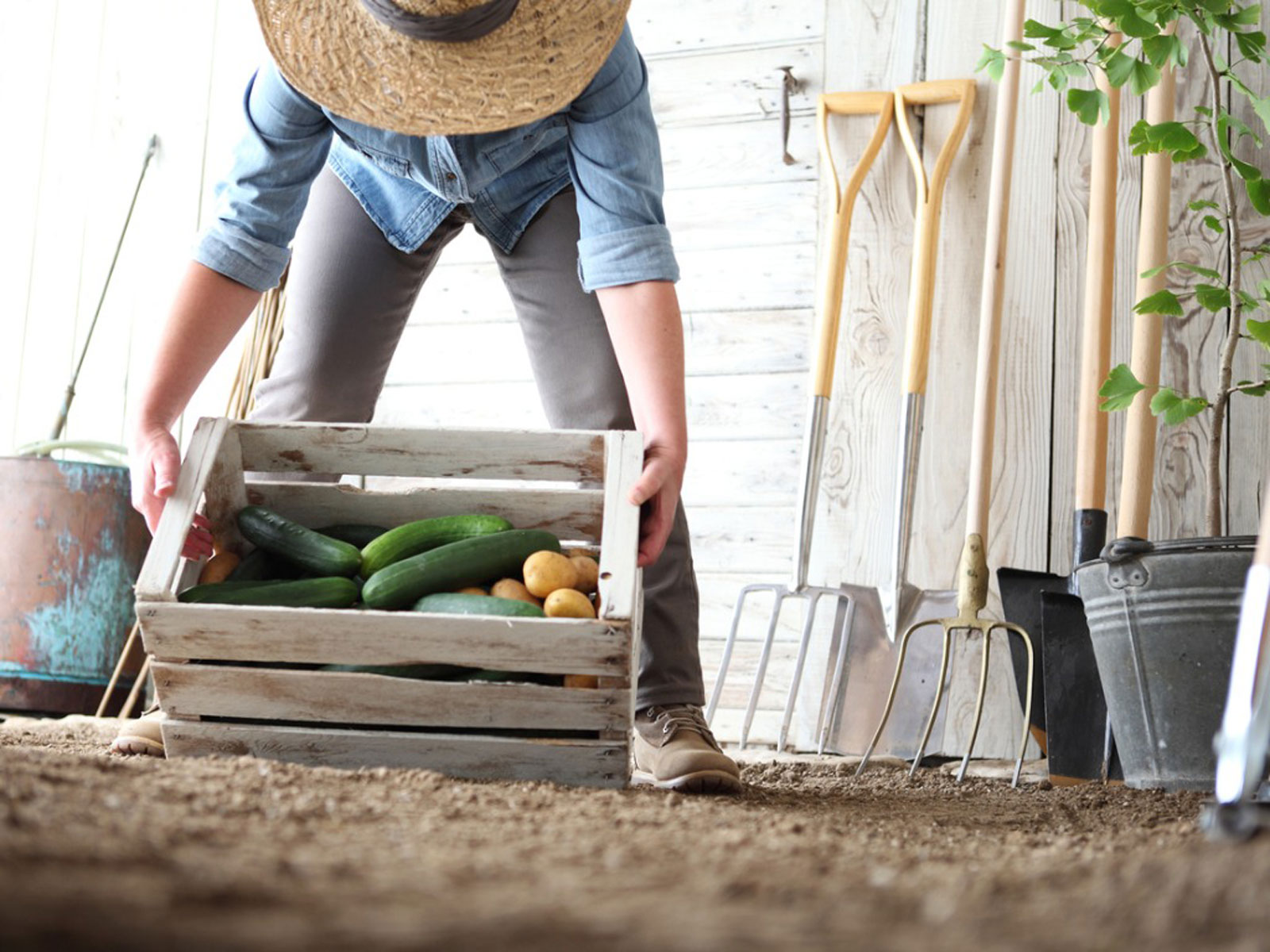
A hobby farm is a small farm for your pleasure rather than income. If you want to start a hobby farm, you need to plan and set your goals. You should think about what animals and crops you would like to raise. You can write a one-year plan.
In essence, a hobby farm is between a conventional farm fully operating as a business or a completely sustainable farmstead. It is mostly around 10 acres or less. It should be small enough to provide a way for you to grow your sustainable food and large enough to generate a small income potentially.
Hobby farmers are also focused on a healthy ecosystem so that they will grow crops and animals organically. If you are someone who raises chickens, goats, and a bit of vegetables, then you are considered a hobby farmer.
What is the difference between a hobby farm, a homestead, and a farm? A hobby farm and a homestead can be the same, depending on your purpose behind farming. A farm and a homestead can also be considered the same if you farm for a living, you are doing it for your income and not as a hobby.
What are the types of hobby farms? These depend on several factors, like the land available and the climate you live in:
Chickens. Egg farming does not need much space, and chicken waste can be turned into fertilizer.
Bees. Honey comes from bees. You can sell this honey to other farmers.
Microgreens. If you have small land, this is a great option. They grow quickly so they can be ready to eat or sell in less than a month.
Fruits or Vegetables. Fruit orchards and vegetable crops are a great addition to your farm. You can add some berries like blueberries and strawberries.
Christmas Tree Farm. It takes between 5-10 years to benefit from this type of farm.
Small livestock. Pork that is set free and fed organic food can generate meat premiums.
Here are some tips when starting a hobby farm:
Start simple. Start with one (1) to two (2) projects per year. Having a couple of projects annually will give you ample time dedicated to farming, making you feel relaxed as you expand in the next few years. Managing a lot of animals and crops at the same time will have you stressed and burned out in no time.
Do not think of profit. The term itself – hobby – is synonymous with relaxation and pastime. If you’re running a business that aims to earn in the farmer’s market, you are not a hobby farmer. Making a little extra on your hobby farm is okay, but most of your time should be spent with fun.
Do not sustain debts. Do not spend money that you do not have. Save up for upcoming purchases. There are some upfront costs; set a budget or stick to it so you don’t get your funds depleted. You may also consider getting hobby farm financing to ensure that your budget can support mortgage payments.
Research. Read books on hobby farming. You can also take online classes. Decide on what type of hobby farms work best for your land and environment.
Discuss with other farmers. Experience is the best teacher, and you can learn a lot from the best practices shared by other hobby farmers. Get involved in your local farmer communities.
Do-It-Yourself. DIYing will save you much money and make you discover how to run things on a farm.
Know when to ask for help. Ask for help when you feel overwhelmed. You are not a failure for doing so. Some tasks need professionals to get done.
Be patient and take your time. Farming is like being in a relationship. You need the commitment to sustain it. It is a long-term business that might take 3-5 years to see how it’s going.
Stick to one thing at a time. If you succeed with raising goats, do not jump to raising chickens. Prepare a timeline for additions.
Keep a journal. Track down whether you’re growing your products and the costs.
Be flexible. Go ahead and experiment. It’s your farm, and you can do whatever you want.
Have fun! If the farm you started is becoming stressful instead of enjoyable, you need to take a step back and think about whether this is the right hobby for you.
Here are some pros and cons of hobby farming:
Pros:
Therapeutic. Listening to your animals in the morning, harvesting your fruits and vegetables. You can hobby farm as your therapy.
Practical. Growing your healthy vegetables as food tastes better than non-organic food in the grocery.
Self-sustaining. The more you raise, the less you have to buy. You become self-sufficient.
Cons:
Taxes. Added expenses mean additional taxes. You may get some support from hobby farm financing agents for tax payments.
A lot of work. Raising your food does not magically happen. It’s a ton of work using your blood, sweat, and tears. You cannot raise animals during winter. Water is frozen so you cannot provide drinks for your livestock and vegetables. You have to ensure they survive despite the change in weather and temperature.
Responsibility. You cannot just go on vacation with the rest of the family when you want to. You have to think of your crops and animals, ensuring they will have food and water while you are out. You also need to water your garden, collect the eggs, and pick the vegetables.
Starting this hobby is a satisfying way to spend time outdoors, grow sustainable and healthy food, and possibly create another revenue-generating stream. Since it’s an investment on your part, you should protect it just as you would your house and car. You shouldn’t leave this up to chance.
United Farm Mortgage can provide you with hobby farm financing, farm loans, and mortgages so you can start your hobby farm, sustain, and protect it, too.
https://www.treehugger.com/top-tips-for-starting-hobby-farm-3016704
https://www.westfieldinsurance.com/resources/articles/how-to-start-a-sustainable-hobby-farm
https://morningchores.com/hobby-farm/


